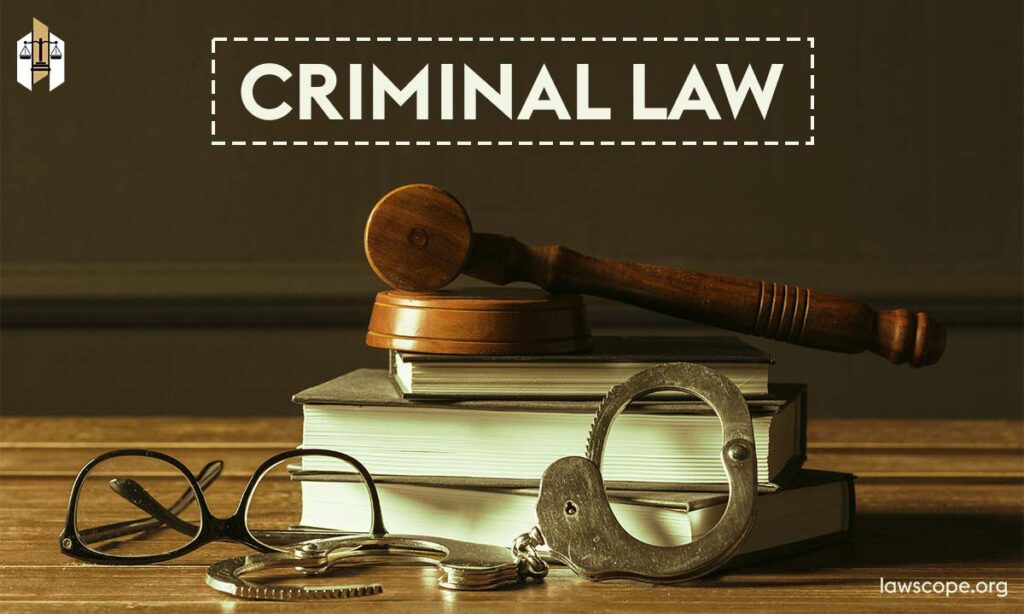
Criminal law is a complex and often intimidating aspect of the legal system that can leave many people feeling confused and overwhelmed.
The consequences of a criminal offense can be severe and have a long-lasting impact on an individual’s life.
As such, it is crucial for everyone to have a basic understanding of criminal law and the rights and responsibilities that come with it.
Whether you are a law student, a victim of a crime, or simply a curious citizen, this comprehensive guide aims to demystify the world of criminal law.
We will break down the key concepts, principles, and processes involved in criminal law, making it easier for you to navigate the system.
From understanding the different types of crimes to the steps involved in a criminal trial, this guide will serve as your go-to resource for all things related to criminal law.
So, whether you are seeking to educate yourself or handle a criminal case, read on to gain a deeper understanding of this vital aspect of our legal system.
What Is Criminal Law?
Criminal law is all about what happens when someone commits a crime.
It’s all about the investigation, prosecution, and trial.
If you’re found guilty, you could be fined, given a community order, or even put in jail.
A criminal law solicitor can help protect your rights and make sure you get a fair trial.
They can represent people who are suspected or charged with a crime, making sure their rights are respected and their case is heard properly.
Criminal Law Inclusions
Criminal law is different from civil law because it involves punishment.
The state takes action when someone does something that has a big effect on society.
According to the American Model Penal Code, criminal law has four main purposes: to stop and prevent harm, to put people under public control, to protect against bad behavior, to give people the right to know what’s going on, and to differentiate between serious and minor crimes.
Criminal Offenses
Criminal offenses cover a lot of different things, like violence, sexual assault, being dishonest, damaging property, and breaking the law.
A criminal law solicitor can help you out with all of these legal issues.
Speeding and dangerous driving can be especially tricky for people who don’t have a lot of experience dealing with the police or courts.
Smaller offenses can get you fined or get you points on your driving license, but more serious stuff like causing injury or even death can mean you could end up in jail.
It’s really important to choose a solicitor who knows what they’re doing if you want to get the best legal result.
Benefits And Drawbacks Of Criminal Law
Criminal law is an exciting, fast-paced job that has a big impact on people’s lives and takes up a lot of time and energy.
Benefits
1. Human Based: Criminal law is a tough job, but it’s also a rewarding one.
It’s about getting to know more people and their stories.
Criminal lawyers need to be able to empathize with their clients, understand why they did what they did, and empathize with their trauma.
They need to spend time with their clients to really get to know them.
2. Fast-Paced: Criminal law shows have proven to be not too far-fetched.
Arash Hashemi, an attorney at Law Offices of Arash Hashemi, initially wanted to be a criminal defense lawyer due to the glamorous courtroom drama and fast-paced life portrayed in movies and TV.
Drawbacks
1. Extra Hours: Criminal lawyers don’t have a lot of time for lunch because they’re always on the road, going to court, and working on cases.
They might drive to court multiple times in one day and get back to the office by lunch, but they probably won’t have time to grab a bite since they have so many cases to get ready for.
2. Emotionally Draining: Criminal defense lawyers face daily challenges, witnessing clients’ pain and court verdicts.
The job can be draining, especially when a case doesn’t go your way or the prosecutor tries too hard to win. Those considering this career should be prepared for disappointment.
Role Of A Criminal Lawyer
A crime solicitor works on a variety of criminal cases, including general crime, defense, and prosecution.
They are likely to be involved in client-counsel liaison, evidence evaluation, taking directions, and attending conferences.
Clients may also be represented in court, police stations, or prisons.
The hours are variable, and they may be on call 24 hours a day if they work for a duty solicitor service.
While there are some similarities between white-collar and general crime, there are also substantial variances.
The key distinction is the amount of material to learn, as corruption investigations frequently entail sophisticated documentation.
Furthermore, the duration of a case might vary, with some fraud trials taking years.
Studying Criminal Law
It’s no secret that criminal law is a tricky area that requires a lot of empathy, logic, and a human touch when it comes to dealing with clients.
A lot of successful criminal lawyers say they got into the field because they’re victims of crime.
If you’re interested in studying criminology, you can do it at the University of Law.
You can get a Bachelor of Criminology (BA) or a Bachelor of Sociology (BA).
If you want to become a criminal law lawyer, you can either take the SOLICITORS QE or the LPC.
After two years of training, you can then apply to the SRA.
Gaining Experience In The Criminal Law
If you want to get a feel for criminal law, get some work experience in local courts or at the Citizens Advice Bureau.
The Employability Service helps with studies, provides work experience with real clients, and organizes work experience opportunities across the country.
You can also get free legal advice from outside placements in non-profit organizations.
Job Titles In Criminal Law
Criminal lawyers are legal professionals who represent defendants in criminal trials, either as private or public defenders, or for the state, local, or federal government.
They also serve in a variety of non-legal degree-related jobs, including criminal profilers, private investigators, victim advocates, financial examiners, forensic psychologists, police officers, security guards, property management technicians, bailiffs, probation officers, and fraud investigators.
Average Salary Of A Criminal Lawyer
If you’re just starting out as a criminal lawyer in a firm out of town or in a smaller criminal practice, you can expect to make between £20k and £40k a year.
The average criminal solicitor in London can expect to make anywhere from £40k to £80k a year, depending on how long you’ve been practicing.
Payscale says that if you have over 10 years of experience, you can make between £40k and £120k a year.
If you’re based in London or one of the bigger cities, you’ll usually make more.
Discover More: Car Wreck Lawyer: When You Should Hire One And Why?
Frequently Asked Questions (FAQs)
Q1. What Is Criminal Law?
Criminal law is all about what happens when you commit a crime.
Felonies are the most serious offenses, while misdemeanors are minor offenses.
Penalties depend on the type of crime, where you committed it, who you were involved with, and when you committed it.
Q2. What Is The Purpose of Criminal Law?
Criminal law is all about what’s considered right and wrong in society, how to stop crime, how to protect the public, how to punish and rehabilitate criminals, and how to help victims.
It brings order and stability to society, and understanding the Criminal Code helps make decisions.
It also stops people from committing crimes and provides victims with financial help and hope.
Q3. What Is The Difference Between Criminal Law and Civil Law?
Civil law and criminal law deal with disputes between people or groups.
Civil law deals with disputes between people and court cases that settle disputes.
Criminal law deals with government filing, which is when someone is found guilty of something or admits guilt, and gets jail time or a fine.
Q4. Which Level of Government Writes The Majority of Criminal Laws?
The legislative branch of government (part of the federal government) is responsible for making laws, confirming presidential appointees, and declaring war.
They also share criminal law writing with state governments.
State laws are voted on by state legislatures.
The Model Penal Code was published by the American Law Institute in 1962 to create common criminal statutes for all states.
It’s not widely accepted, but many states combine parts of it with their own criminal codes, so it’s a good starting point for making changes to criminal statutes.
Q5. What Is Discovery In Criminal Law?
In both civil and criminal trials, discovery looks at evidence that the other party has planned ahead of time, so it doesn’t come as a surprise when the trial starts, and it helps narrow down what’s really going on.
In criminal trials, discovery has expanded to include evidence that the defense has from the prosecution, like police reports and testimony from witnesses.
Q6. How To Become a Criminal Lawyer?
To pursue a career in criminal law, enroll in basic courses on crimes like murder/murder, sexual assault, defenses, juvenile law, mental health law, prosecution ethics, trial practice, and white-collar crime.
May You Like Also: Pain and Suffering Calculator Guide: Maximize Your Settlement
Bottom Line
Criminal law is a complex and often overwhelming aspect of the legal system, but it doesn’t have to be.
With a basic understanding of key concepts, principles, and processes, individuals can navigate the system with confidence and knowledge.
Whether you are a law student, a victim of a crime, or simply a curious citizen, this comprehensive guide aims to demystify criminal law and provide you with a reliable resource for all your questions and concerns.
Remember, everyone has the right to understand and protect themselves within the legal system, and we hope this guide helps you do just that.
You May Like Also:


9 thoughts on “Criminal Law Demystified: Your Comprehensive Guide”